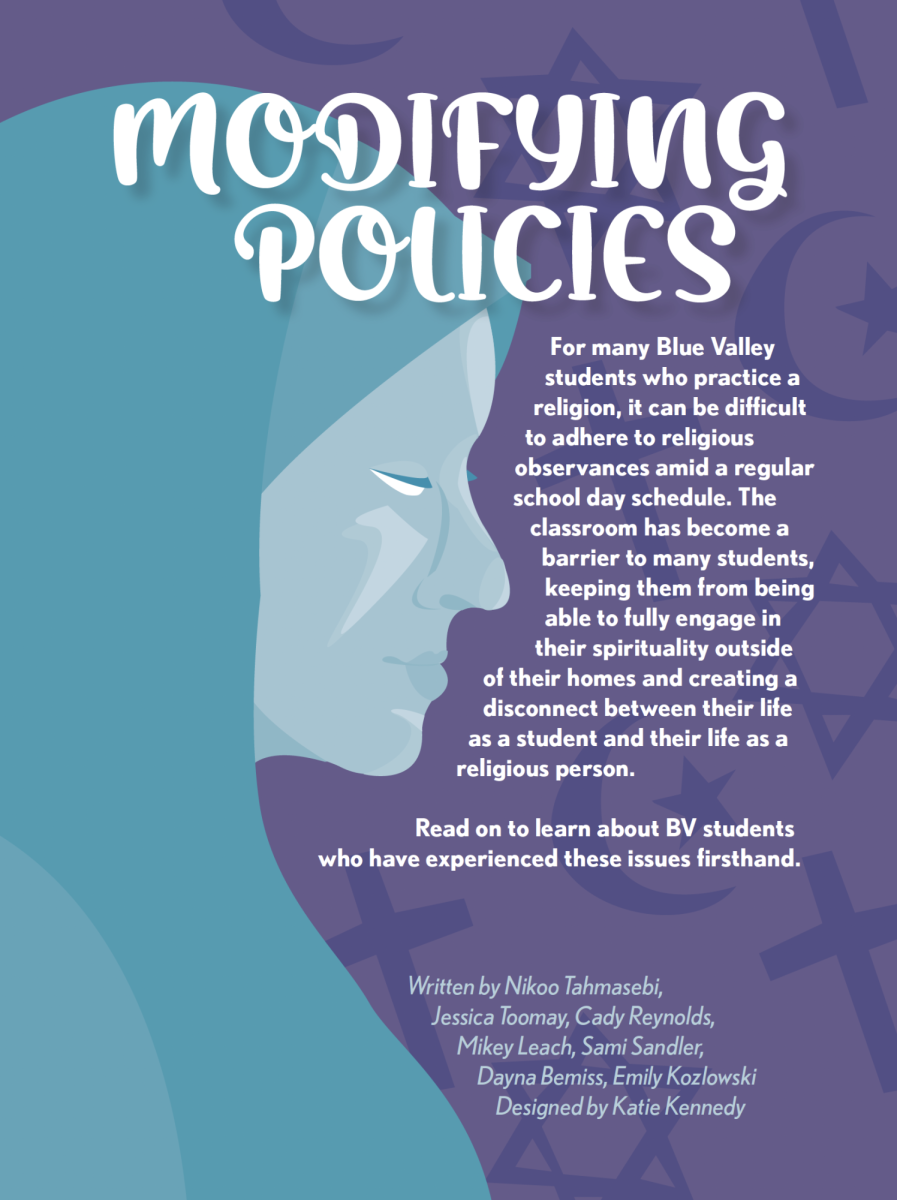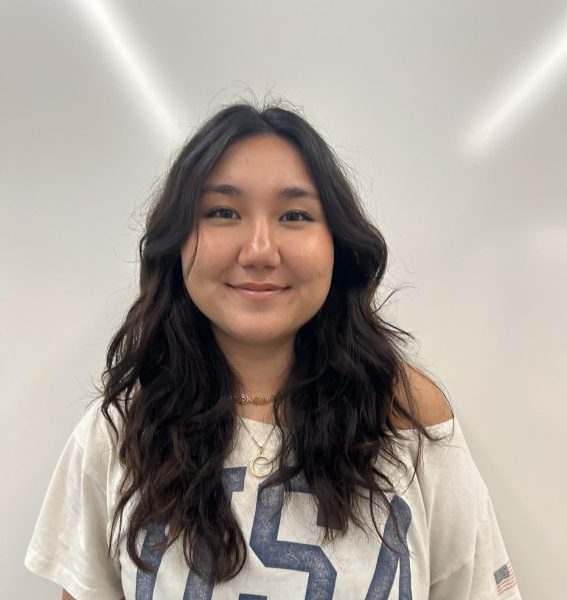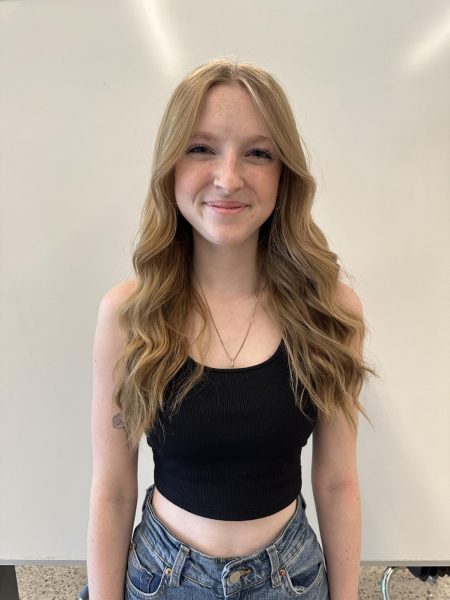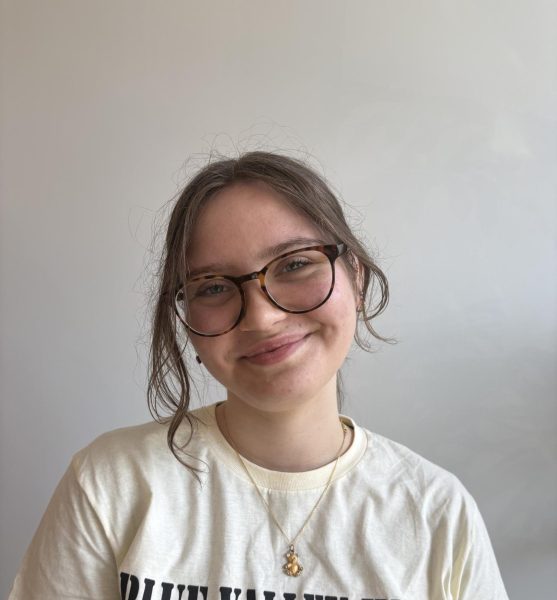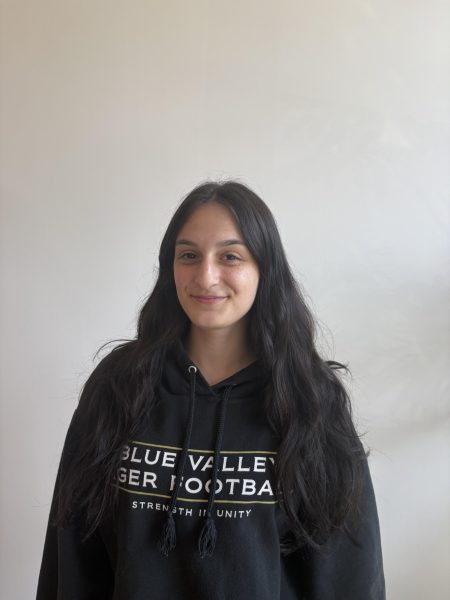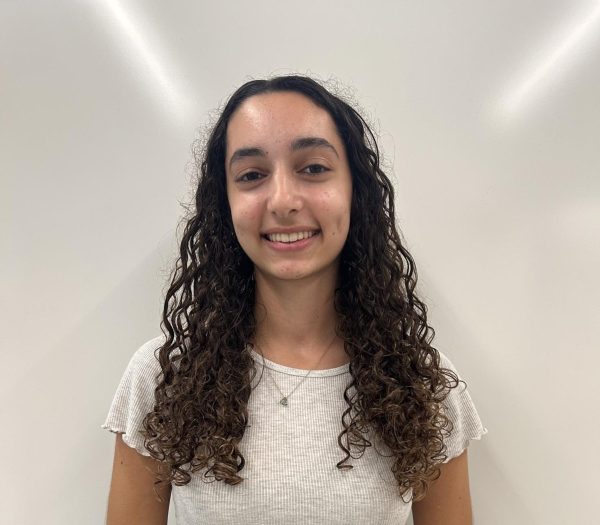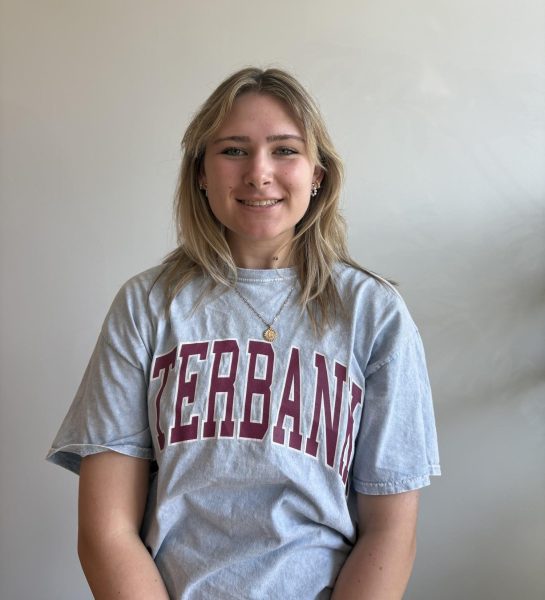RAMADAN
“Ramadan is considered one of the holiest months of the year for Muslims. In Ramadan, Muslims commemorate the revelation of the Qur’an and fast from food and drink during the sunlit hours as a means of drawing closer to God and cultivating self-control, gratitude and compassion for those less fortunate. Ramadan is a month of intense spiritual rejuvenation with a heightened focus on devotion, during which Muslims spend extra time reading the Qur’an and performing special prayers.” – The Islamic Network Group
Spreading Awareness about Ramadan
From March 11 to April 9, the Islamic celebration of Ramadan takes place. The 30 days include the tradition of fasting from sunrise to sunset, then participating in a prayer before sharing a meal with friends and family.
At the end of the 30 days, Ramadan ends with the holiday Eid al-Fitr, which marks the end of the month of Ramandan with family and friends.
Senior Sara Al-Kofahi details what makes Ramadan a special part of the year to her as well as many others.
“It’s a time to give back,” she said. “It is a month we all look forward to because it is filled with family and friends and the celebration after has a lot of significant meaning.”
Junior Ziyad Suwan agrees with Al-Kofahi that Ramadan is a treasured moment of the year.
“It’s a time when we go more toward [the] spiritual, religious side, and we focus on our relationship with God,” Suwan said. “A lot of people usually come together during this time.”
For the students in Blue Valley who celebrate Ramadan, recent accommodations have helped them feel more comfortable during the school day.
“The school has prayer rooms because we have five prayers every day we pray, so that [has been] helpful,” Al-Kofahi said.
Suwan, however, said it is not a celebration that can nor needs to be extremely helped for by the school.
“It’s not something that can be super easily accommodated for,” he said. “For most Muslims who have fasted their whole lives, it’s not super difficult.”
To make students feel more comfortable in school during Ramadan, Al-Kofahi believes there should be more explanation to staff.
“Telling teachers about it [is important] because sometimes students will be a little bit tired, especially the first week when their bodies are getting used to the fasting,” she said.
Suwan agrees with Al-Kofahi, adding that general knowledge of the celebration would be helpful throughout the school.
“Having people keep in mind that there are some people who aren’t eating so not doing anything involving food too much,” he said. “Just being respectful is really important.”
Faculty discuss accommodations for religious holidays
With Ramadan occurring, and the traditions that come with celebrating the holiday, administration has taken the task to become aware and cognizant of all the needs of the student body. Assistant principal Mollie McNally and freshman biology teacher Grace Wright weigh in on the progressivity happening in BV.
“What they need to do for religious reasons is very important,” McNally said. “If it helps to accommodate a prayer room or needed space to help the students feel comfortable at school and still be able to do their schoolwork, we will do just that.”
What has driven these efforts for administrative change has come from the conversations held with students and the multitude of organizations that BV holds. However, principal Charles Golden has taken it a step further with just last year visiting different communities and groups to understand the changes our school should make to foster an inclusive learning environment.
“We went to our Muslim community, and he and I had a meal with them and learned about what our students would need from us,” McNally said. “I think the more we are getting out there and learning what our kids see, the better.”
Additionally, the district has also sent out new calendars indicating holidays for a majority of religious and cultural groups from Holi to Yom Kippur. This is not always the case in all school districts. Wright, who used to work in Dodge City, recalled that her former distrct’s school schedule had mostly revolved around Catholic holidays.
“The reason we moved here was because we wanted to have a more diverse location for our children,” Wright said. “The fact that we have clubs specifically for minority students, I thought, was really awesome. I really liked the different ways that they highlight each group and give them an opportunity to voice their perceptions and cultural standpoints to share it with the rest of the school.”
Students advocating for an adjustment or understanding of their religious practice are not unheard by the faculty, and McNally said that conversation goes both ways.
“We feel like we can ask, and it’s knowledge we need,” McNally said. “It’s our community willing to talk to us and students willing to step up. A lot of student associations have been created, and I think that helps give students a voice.”
Ambassadors for Clubs
There are multiple Christian clubs at BV, one of which is girls Bible study group Ambassadors for Christ (AFC). Club members meet on Wednesday mornings and enjoy cereal and other breakfast options while reading and discussing books of the Bible together. Though some religious clubs feel the school is not accommodating, Ambassadors for Christ sponsor Mackenzie Garber feels otherwise.
“I would say they accommodate our club just like any other club, thankfully,” Garber said. “Our club is student-led, so they are really accommodating, allowing us to be a Bible study in a public school.”
Although she would like to have Good Friday off school, Garber believes BV does the best it can.
“It’s impossible for them to stop things from happening on all holidays,” Garber said.
Garber is grateful the school helps AFC gain recognition by allowing posters around the school and hosting club fairs, but students, especially freshmen, may not know if they have the time to commit to joining the club.
“It may be helpful to do a second [club fair] second semester,” Garber said. “That might catch a lot of freshmen who didn’t join initially.”
One thing Garber wishes the school would do is set aside time for clubs to meet during the school day because most people are busy after school, and teachers have meetings on late start mornings.
“I know clubs can meet during advisory, but it never works out because kids have to choose other things,” Garber said. “It would be more open for more people to come.”
Accommodated Religion
Blue Valley is home to students of different backgrounds. Among those students is a large array of religions. In certain religions, there are holidays with traditions that have specific requirements.
BV hosts a variety of clubs for students to share their religion with the student body.
Some of these clubs include Fellowship of Christian Athletes and Faith and Reason Club. Seniors Julia Kingsbury and Charlotte Warren talked about the accommodations made for their respective clubs
“FCA is a big help,” Kingsbury said. “We have Bible studies here that the library lets us host, and I think that that’s been really helpful.”
FCA typically meets in the mornings and uses the time given to have a small sermon and talk amongst one another about the Bible.
“[It’s] helpful for a lot of Christians that don’t have other times in their week,” Kingsbury said.
Knowing not everyone is Christian, Kingsbury said there isn’t a lot Blue Valley needs to adjust.
Faith and Reason Club is dedicated to understanding the logic and theology behind religion. Typically, the club has guest speakers come in and discuss different religions and their backgrounds as well as the ideas behind those religions.
“[It is] a place where we could have different guest speakers come in and discuss with students — sort of like more of like the theology behind different things the ideas, theology, and the thought processes behind different religions and why people believe what they believe,” Warren said.
FACTS ABOUT LENT
-commemorates the 40 days Jesus Christ spent fasting in the desert and enduring temptation by Satan
-everyone over the age of 14 must not eat meat on Fridays and Ash Wednesday
-on Ash Wednesday and Good Friday, everyone 14 to 59 must fast, unless exempt due to a medical reason
Celebrating The Persian New Year
Iranian students celebrated Nowruz March 19, marking the start of spring. Nowruz is the Persian new year, beginning on the spring equinox and lasting 13 days. This time is often spent celebrating with family, feasting and exchanging gifts.
Junior Ava Aslinia enjoys the celebrations and believes it helps bring everyone together.
“I genuinely appreciate having a holiday to immerse myself in Persian culture and spend time with family,” Aslinia said. “Nowruz is an opportunity to reflect on myself and the past year. It’s truly an opportunity for new beginnings.”
Sophomore Nadia Moiny agrees, adding that the holiday helps her connect to her community.
“It is a reminder of my heritage and of how I am not only American, but I am Iranian American,” she said. “It shows resistance to Iran’s repressive regime and how our people still prevail.”
Despite Nowruz often falling on a school day, BV makes no adjustments to its schedule. Aslinia doesn’t see this as an issue, however, and said the school couldn’t do much to improve their celebrations.
“[The school does] nothing,” Aslinia said. “Even with school in session though, I think it’s possible to celebrate in the evening or the 12 days surrounding Nowruz.”
“Everyone I know who celebrates it gets called out of school if Nowruz falls on a school day,” Moiny said.
Although Aslinia also believes there’s no accommodations necessary during Nowruz, she thinks the school could inform students of other cultural holidays.
“There’s room for greater awareness and education surrounding the diverse set of cultures that constitute Blue Valley,” she said. “I never expect people to be knowledgeable about the Persian new year, but I recall being pleasantly surprised last year when Mrs. Whitten wished me a happy Nowruz. That definitely made my day.”
Moiny wishes students at Blue Valley would have a wider appreciation of cultural traditions.
“It’s OK to not know about every single holiday because I know I don’t,” Moiny said. “However, not knowing or being educated about a holiday does not mean it is OK to be offensive and demean the holiday.”
NOWRUZ:
– Iranian or Persian New Year
– no dietary restrictions
Accommodating religious minorities at BV
For students who belong to the Jewish faith, such as senior Leah Martin and sophomore Beckett Hodes balancing Jewish practices and school is a struggle. They feel there’s more to be done to accommodate their practices and help them feel included within the school community.
“The admin tends to underestimate or understate the gravity of particularly two [high holidays], Rosh Hashanah and Yom Kippur,” Hodes said. “[Admin] see them as minor holidays, when they’re not. I don’t think people should have tests scheduled on those days, which is what has happened in the past and will likely happen again.”
When it comes to making up work from missed days, Jewish students find that some staff members are not reliable or versatile.
“It would be helpful if teachers and administrators knew about Jewish holidays and how they can be more flexible with them,” Martin said.
Another important Jewish holiday is Passover, which occurs in the spring over eight days. People observe a special diet called kosher parve during this time. Martin always brings her lunch from home but said there should be parve options for students who purchase school lunches.
“[Passover diets] are not accommodated in the cafeteria at all,” Hodes said. “There is nothing [Jewish students] can eat in there besides fruit and salad. The school has an obligation to provide at least some kind of protein that would be OK for people who are observant to eat.”
In addition to meal time alternatives and scheduling alterations, Hodes believes there are many ways administrators could make Jewish students feel more included in school.
“The Christian holidays are recognized [more often than Jewish],” Hodes said. “There should be education about what’s [happening in] other religions.”
Martin said students at BV have struggled to be heard and feel represented in school. She said BV only recognizes Christian holidays too.
“While the school has done a decent job of combating overt antisemitism, they haven’t actually contributed to the accommodations we need on a day-to-day basis, particularly during the holidays,” Hodes said.
JUDAISM details:
-followers believe in one God who revealed himself through ancient prophets
-the Torah is their holy book, which provides law and tradition
-worship in synagogues
-diet is called Kosher, which divides food into three categories (meat, dairy and pareve) and avoids cross-contamination among categories
PASSOVER:
Passover, or Pesach in Hebrew, commemorates the slavery of the Israelites in Egypt and their ultimate exodus to freedom.
Passover brings extra stringencies around what food is present in a Jewish space. Tradition dictates that a Jewish person should not consume, derive benefit from, or even see chametz (leavened wheat products) during the Passover holiday. The central ritual of Pesach is the Seder, a carefully choreographed ritual meal that takes place on the eve of Passover at home with family and friends or with the community. – Peninsula Jewish Community Center



